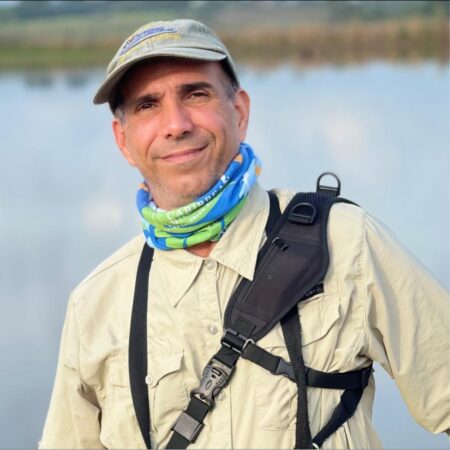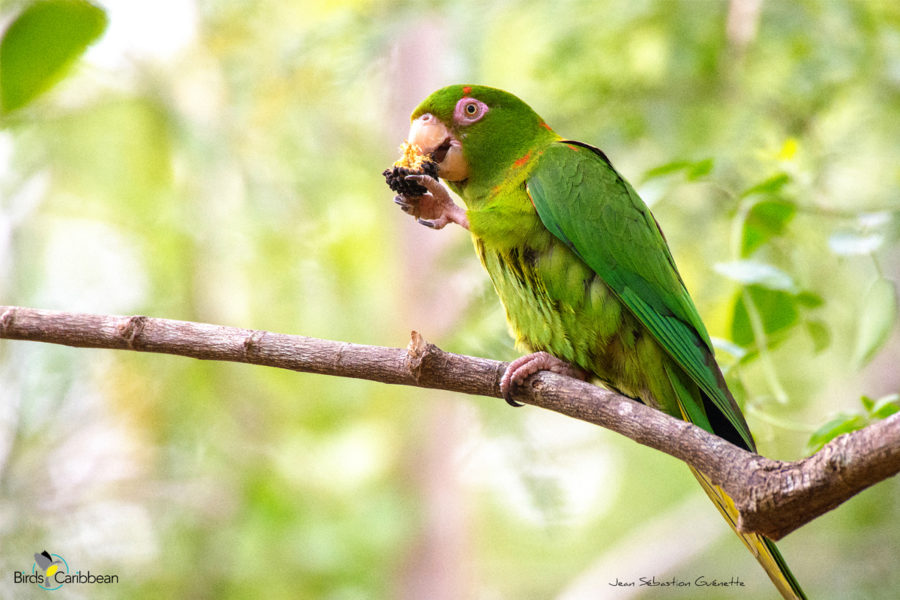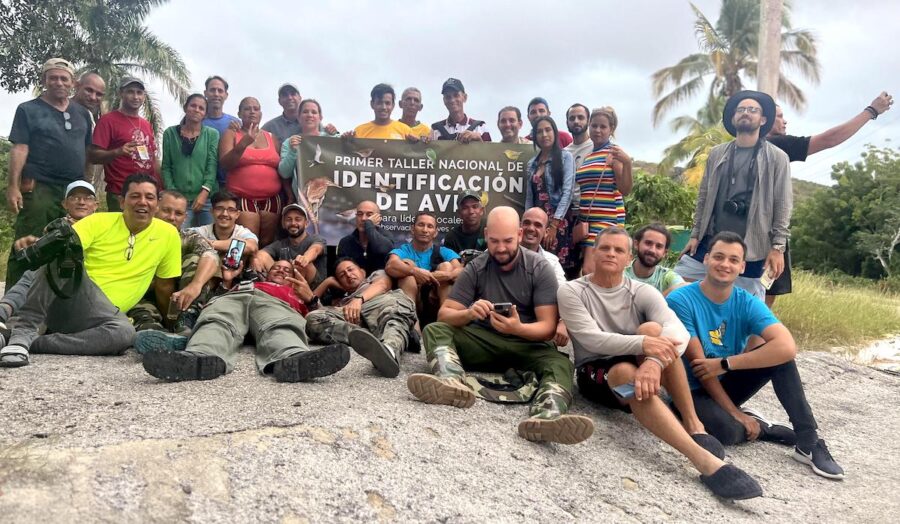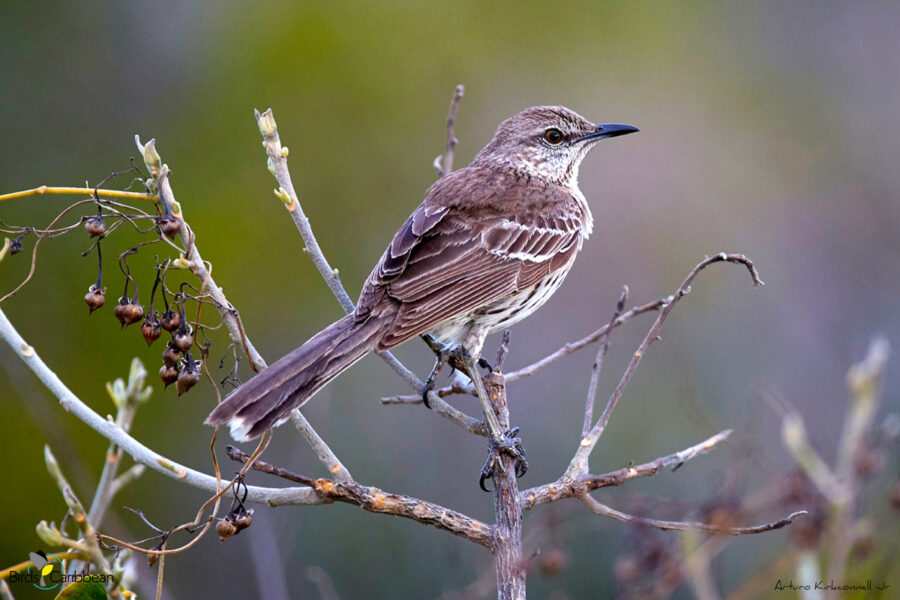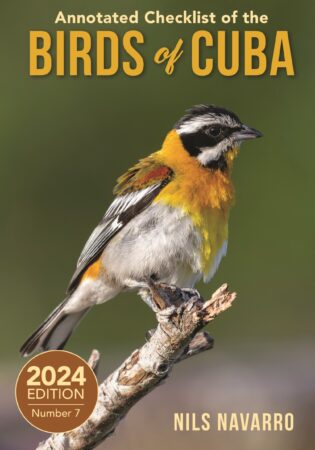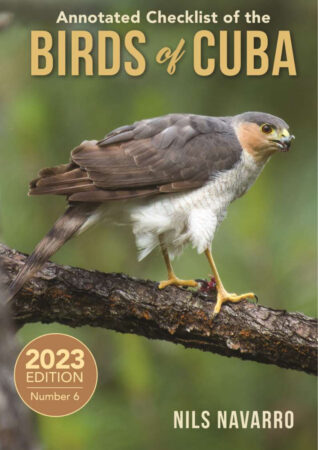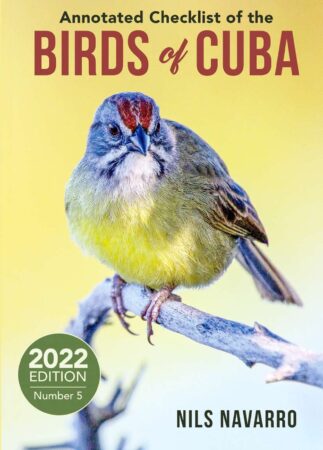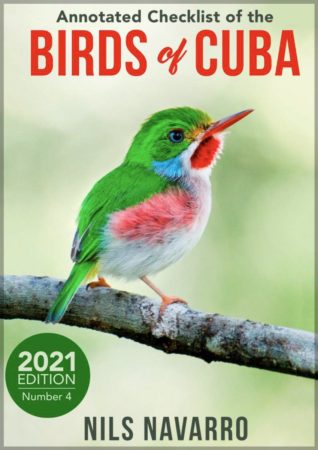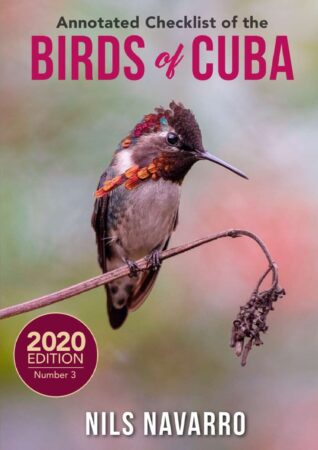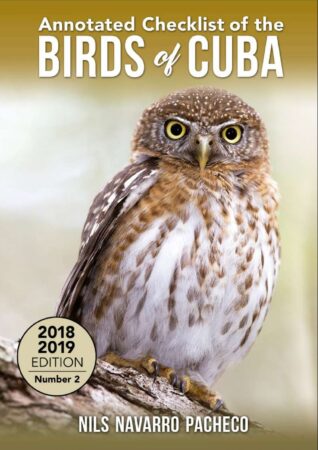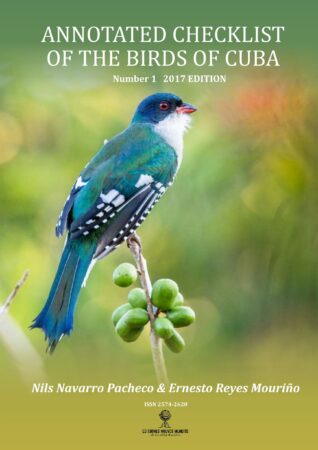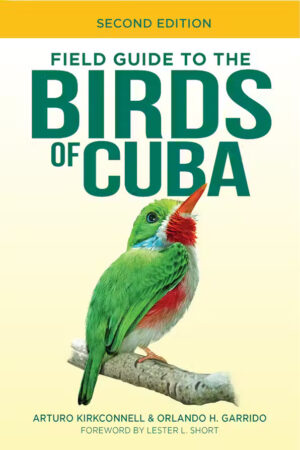 What does it take to update a guide to over 400 bird species on one of the Caribbean’s most biodiverse islands? Arturo Kirkconnell, co-author of the recently released Second Edition of Field Guide to the Birds of Cuba, shares his journey to update the island’s first field guide, the challenges he faced, and his most memorable birding moments in this exclusive BirdsCaribbean interview.
What does it take to update a guide to over 400 bird species on one of the Caribbean’s most biodiverse islands? Arturo Kirkconnell, co-author of the recently released Second Edition of Field Guide to the Birds of Cuba, shares his journey to update the island’s first field guide, the challenges he faced, and his most memorable birding moments in this exclusive BirdsCaribbean interview.
Cuba’s diverse ecosystems and unique geography make it a haven for birdlife, with over 400 recorded species—including 29 found nowhere else on Earth, and 21 classified as globally threatened. For birdwatchers, the island is a treasure trove of avian wonders, from the dazzling Cuban Tody to the flocks of migratory birds that winter here each year. As the island’s birdwatching community continues to grow, enthusiasts now have a vital new resource—the updated Field Guide to the Birds of Cuba.
The second edition, co-authored by Arturo Kirkconnell and the late Orlando Garrido, features a complete redesign with 95 color plates and over 700 images, showcasing birds in male, female, and juvenile plumages. Alongside detailed species accounts, range maps, and key identification features, the guide now includes crucial information on breeding and winter plumages, making it an indispensable tool for identifying both resident and migratory birds.
In this interview, Kirkconnell reflects on his early birding experiences, the complexities of updating the guide, and the advice he’d give his younger self—offering a behind-the-scenes look at the journey that brought this new edition to life!
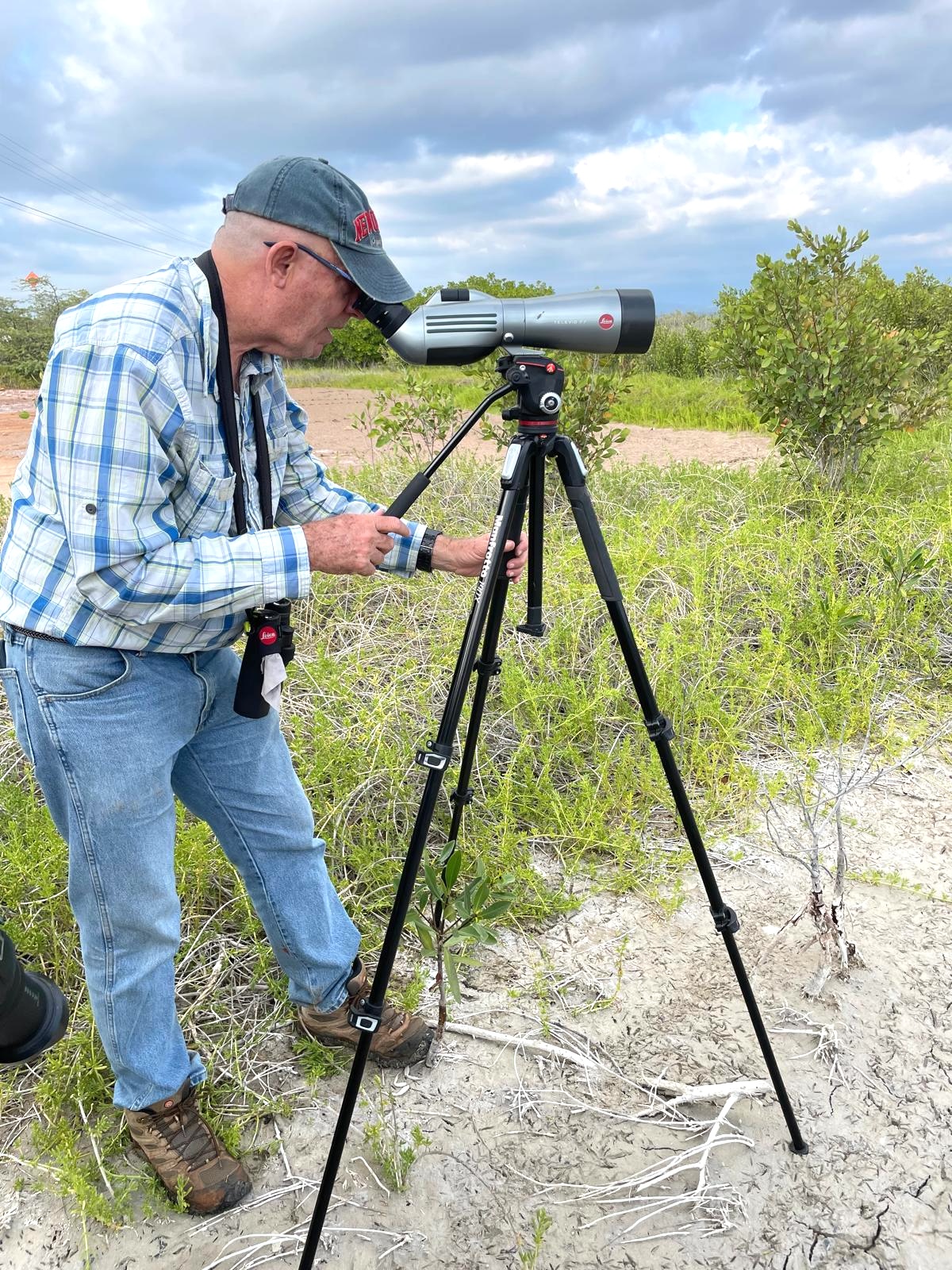
Book and Process of Updating the Guide
What inspired you to update the Field Guide to the Birds of Cuba, and how is it different from the original edition?
The first edition was 25 years old and needed updating, especially the range maps, bird descriptions, taxonomic changes, and new records for Cuba. I felt that some aspects could be improved, so I saw this as an opportunity to create a more comprehensive and up-to-date version. Additionally, this edition pays tribute to Orlando Garrido, a legendary Cuban ornithologist whose groundbreaking work left a lasting impact on the scientific community.

Can you share some of the challenges you faced while researching and compiling information for the guide?
The biggest challenge was improving the illustrations. I’m grateful for Herb Raffaele’s support and the help from new artists, whose contributions enhanced the guide with high-quality illustrations. These are crucial to a field guide’s success, but securing funding remains a major obstacle—it’s an expensive project. I hope to secure additional funding for doing even more new illustrations in the future, especially of the endemics; it’s a dream I’m working toward.
How long did it take you to finish updating the book and what challenges did you face?
It was a five-year journey of intense work. One particularly tough moment was when my computer crashed and I lost eight months of progress. It was disheartening, but I pushed through, knowing how important it was to complete the project.
Field guides require a balance between scientific accuracy and accessibility. How did you achieve this?
I aimed to use simple, clear language to ensure the text was understandable to a wide range of readers. Finding the right balance between scientific accuracy and readability was key, and I believe we achieved that. The guide also includes a glossary and detailed bird topography to help readers understand bird anatomy and key field marks. It took many hours of revisions, and the editors did an excellent job refining the content.
Are there any Cuban species that hold a special place for you, either for their rarity or their behavior?
All the birds hold a special place for me, that is a fact! I love them all, however, I do have a particular passion for Cuba’s endemic species. Whether rare or common, each one is unique, with fascinating behavior and beauty that captivates me.
Where in Cuba can someone purchase this field guide?
Due to sales restrictions, this field guide isn’t available for purchase in Cuba. However, Cuban individuals and institutions can obtain copies through donations from friends and colleagues who purchase the book abroad and bring it into the country. I would love for every wildlife professional and nature enthusiast in Cuba to have a copy, and I have already provided some to colleagues and birders through donations.
The Field Guide to the Birds of Cuba (Second Edition) is available for purchase directly from Cornell University Press, and Amazon.
About the Author
What first sparked your passion for birds and birding? Do you have any funny or unexpected birdwatching stories to share?
I discovered birdwatching at the age of 24—a late start, but with great passion. My journey began with the support of my colleague Alejandro Llanes and the books provided by Orlando Garrido. It was the vibrant warblers from North America that first captured my fascination. I’d never seen them before, and their striking colors and behavior immediately drew me in. At that time, I hadn’t even seen any of Cuba’s endemic species!
One of my most unforgettable birding moments was my first encounter with a Stygian Owl. It was perched incredibly close—just three meters high and only five meters away. I was trembling with excitement, hardly able to believe I was seeing it in broad daylight! Although Stygian Owls are widely distributed, they are nocturnal hunters, making daytime sightings incredibly rare. It was an emotional moment and to this day, it remains my closest and most memorable sighting with this elusive bird.
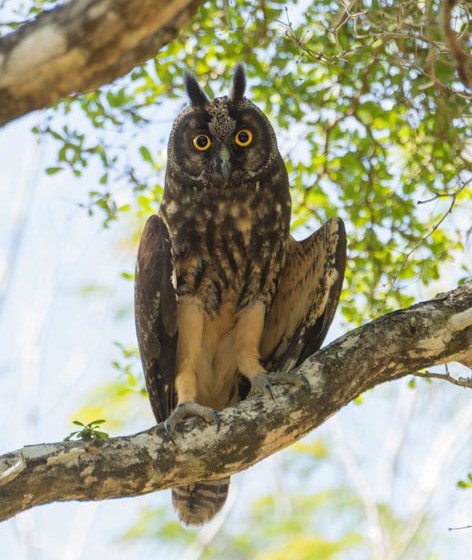
Do you think your connection with birds has influenced other aspects of your life?
My connection with birds has taught me to deeply love all nature, and brought more happiness to my life. It’s also provided me with a magical hobby that’s both entertaining and fulfilling. Can you imagine having a job that brings you great satisfaction and fun? Birds are truly unique creatures!
What was the last bird book (non- field guide!) you read?
The last bird book I read was The Genius of Birds by Jennifer Ackerman, and the last non-bird book was Me, Elton John’s official autobiography. Both are excellent reads.
If you could tell your younger birder self anything, what would it be?
Visiting Long Point Bird Observatory in 1989 was a spectacular experience. The bird banding training was invaluable, and the trip was unforgettable, especially seeing large waves of new species, including warblers, vireos, and thrushes, during fall migration. It was a turning point in my journey with birds. Looking back, I would tell my younger self to travel abroad more. There’s so much to learn from birding experiences in different parts of the world. It’s something I missed out on and really needed when I was younger.
As birding in Cuba continues to grow in popularity, the Field Guide to the Birds of Cuba (Second Edition) is an essential companion for anyone exploring the island’s avifauna. In 2026, BirdsCaribbean will once again offer bird tours to Cuba, making it the perfect opportunity to experience its incredible birdlife firsthand. Be sure to pack this updated guide for your next adventure.
Acknowledgements: BirdsCaribbean granted Arturo access to the bird plates (artwork) from Birds of the West Indies by Raffaele et al. to help complete the Second Edition of the Field Guide to the Birds of Cuba. We extend our thanks to Herb Raffaele and his colleagues for their generosity in granting this access.
About the author: Arturo Kirkconnell is the former Curator of Ornithology at the National Museum of Natural History of Cuba. With 77 scientific publications to his name, he has co-authored two books: A Field Guide to the Birds of Cuba and A Birdwatchers’ Guide to Cuba, Jamaica, Hispaniola, Puerto Rico, and the Caymans. Arturo has been guiding birding tours in Cuba since 1988, sharing his expertise and passion for the island’s rich birdlife.










